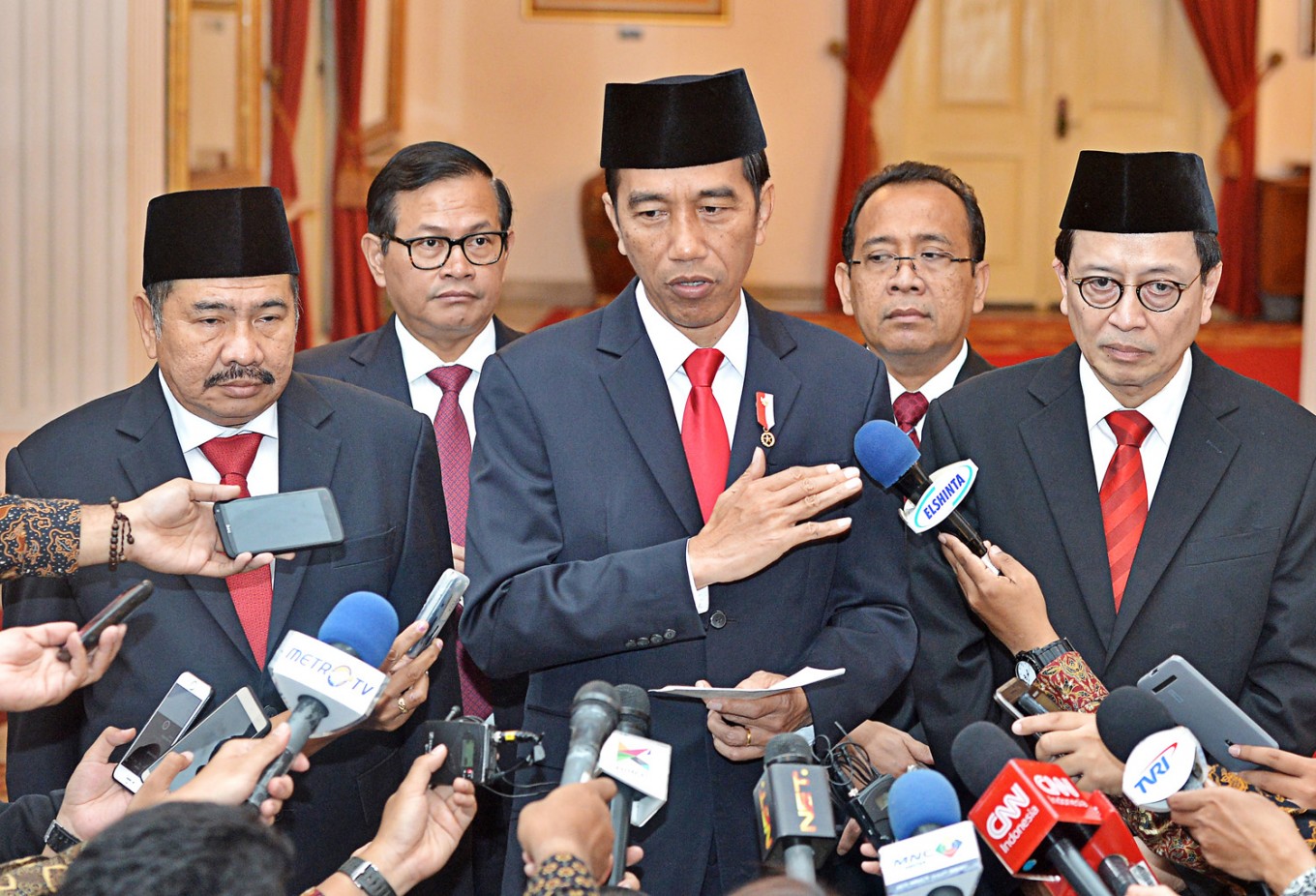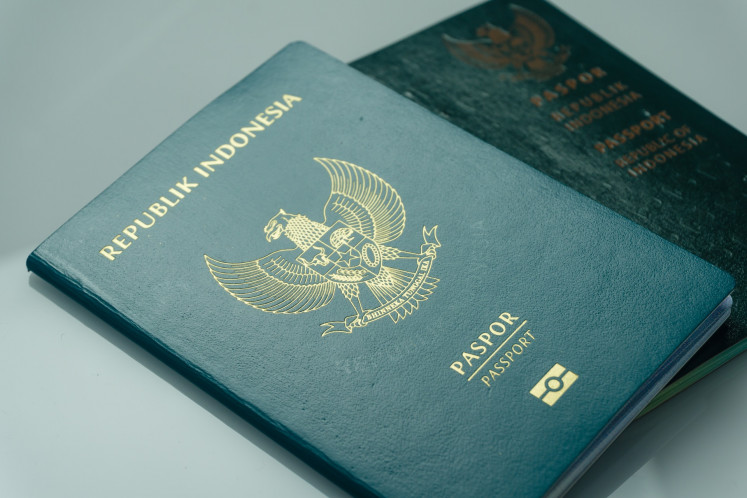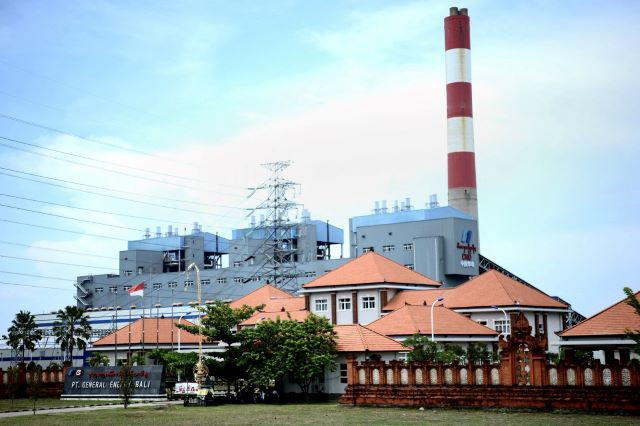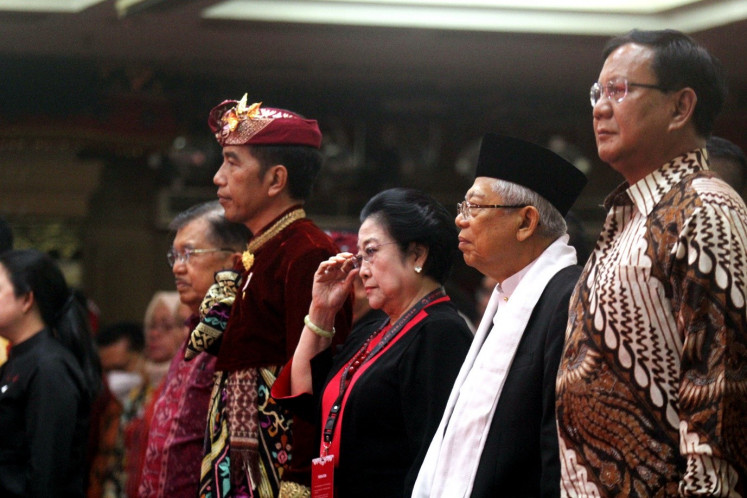PPATK strengthens asset watch
New PPATK list to watch assets, bank accounts of state officials Center aims to be more active in graft fight
Change Size
 All ready – President Joko “Jokowi” Widodo, together with Financial Transaction Reports and Analysis Center (PPATK) head Ki Agus Ahmad Badaruddin (left) and his deputy, Dian Ediana Rae (right), State Secretary Minister Pratikno (second from right) and Cabinet Secretary Pramono Anung (second from left), speaks in a press conference at the State Palace in Jakarta on Oct.26. (Antara/Yudhi Mahatma)
All ready – President Joko “Jokowi” Widodo, together with Financial Transaction Reports and Analysis Center (PPATK) head Ki Agus Ahmad Badaruddin (left) and his deputy, Dian Ediana Rae (right), State Secretary Minister Pratikno (second from right) and Cabinet Secretary Pramono Anung (second from left), speaks in a press conference at the State Palace in Jakarta on Oct.26. (Antara/Yudhi Mahatma)
A
mid rampant corruption by individuals in public offices, the Financial Transaction Reports and Analysis Centre (PPATK) has moved to monitor the assets and bank accounts of high-ranking officials and their relatives and associates.
The center is set to establish a list of politically exposed persons (PEPs), for whom it would have the authority to directly investigate irregular transactions or changes to values of assets.
Currently, it only has the authority to monitor the bank accounts of particular state officials at the request of banking authorities.
The PEP list will be comprised of officials from the executive, judicial and legislative branches of the government. The PPATK will actively monitor the financial activities of the individuals in order to spot graft and money laundering offenses earlier.
The tendency of graft-tainted officials to use family members and relatives of associates to launder illgotten gains inspired the PPATK to make them subject to monitoring under the PEP system, so that it can watch in-and-out transfers from all related parties.
Graft and money laundering convict and former Democratic Party treasurer Muhammad Nazaruddin, for example, laundered Rp 600 billion he gained from corruption through 30 companies with the help of his wife, family members and associates.
(Read also: Terror attacks in Indonesia mostly funded from overseas: PPATK)
The PPATK will also include information on assets that state officials fail to declare in wealth reports in the PEP system by covertly collecting information from relevant institutions in Indonesia or abroad.
The results of the PPATK investigation into PEPs will later be submitted to the Attorney General’s Office (AGO), the Corruption Eradication Commission (KPK) and the National Police for follow-up given that the PPATK, as a financial intelligence body, has no law enforcement authority.
PPATK chairman Kiagus Ahmad Badaruddin said the PEP system would help investigations and prevent officials from committing corruption and money laundering because they would be aware their assets and bank accounts were being watched.
“We hope that with the PEP system we will be more proactive in monitoring [accounts and assets of ] state officials,” Kiagus said.
The PEP system, however, still has weaknesses because it cannot identify cash transactions involving third parties that benefit officials on the list. Cash transactions cannot be recorded by the financial system.
The role of the PPATK in combating corruption and money laundering has won plaudits in past years following its success in submitting information on fat bank accounts of state officials to the KPK in cases related to graft and money laundering.
Some police generals who have been subjected to investigations by the PPATK for having fat bank accounts included current National Intelligence Agency (BIN) chief Budi Gunawan and former National Police traffic division chief Djoko Susilo.
While Djoko was convicted in a graft case relating to the procurement of a driving simulator, Budi, who was formerly National Police deputy chief, was cleared of all charges.
The PPATK also helps the KPK to investigate fat accounts belonging to regional heads.
Indonesia Corruption Watch (ICW) researcher Donal Fariz said it was possible the PPATK would find that officials on the PEP list could be linked to one other in certain crimes.
“Imagine there are millions of transactions involving state officials every day in the PPATK’s system. By listing state officials considered to be prone to graft and money laundering on the PEP list, it will make it easier for the PPATK to monitor their financial activities effectively and efficiently,” Donal said.









